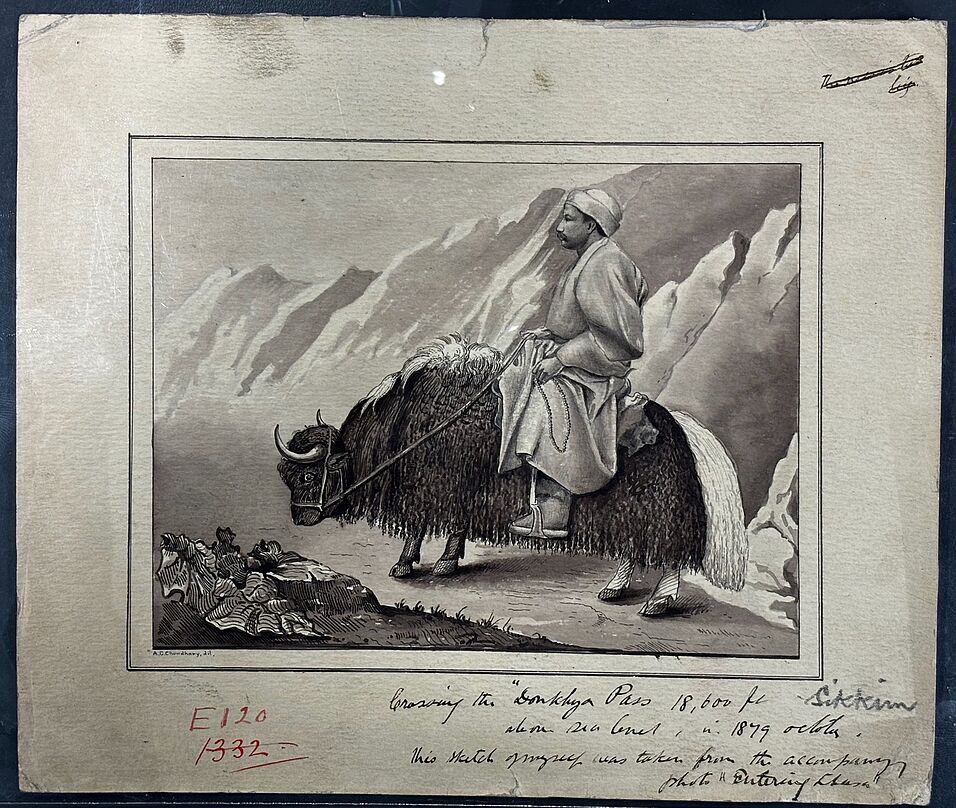This talk, which is part of my work-in-progress monograph on Tibet and its interlocutors in colonial Bengal, assesses the life, role and career of Sarat Chandra Das of Chittagong, the first Bengali Tibetologist. I will begin the talk by discussing my monograph project and pitching my main arguments regarding the ways in which Tibet featured within the re-making of a new sacred and scholarly landscape of Buddhism in late-19th and early-20th century Bengal and how this process, in turn, was premised on a range of local interlocutors, both Bengali as well as Tibetan.
Thereafter, I shall examine Das’s crucial position as a native Bengali stakeholder within the fashioning of this Bengal-Tibet story and underscore the variety of subject positions Das inhabited—from a British imperial agent who voluntarily inserted himself into the Tibet agenda and undertook two expeditions, in 1879 and 1881–82, to the roof of the world, to a collector of Tibetan and Sanskrit manuscripts and to the person credited with the compilation of an Anglo-Tibetan dictionary. In particular, I will be looking at the checkered and mired history of the production of Das’s 1902 book Journey to Lhasa and Central Tibet, the layers of colonial censorship that Das’s own scholarship underwent, and William Woodville Rockhill’s (often) heavy-handed reordering and editing of Das’s travelogues. I will also be discussing how Das ended up ‘producing’ a range of images (both photographs and paintings) of Tibet from the British imperial periphery of Darjeeling and how he (along with his colonial supervisors and Bengali associates) inaugurated the new ‘science’ of Tibetology in the colony through the Buddhist Text Society that he founded in 1892.
About the speaker:
Parjanya Sen is a 2023 Early-Career Research Fellow, The Robert H. N. Ho Family Foundation Program in Buddhist Studies & Postdoctoral Visiting Fellow, School of Anthropology & Museum Ethnography, University of Oxford. At the University of Calcutta, he is employed as Assistant Professor in English at Deshbandhu College for Girls. He is presently working on a monograph from his PhD thesis, on the ways in which Tibet was configured within the remaking of a sacred and scholarly landscape of Buddhism in colonial Bengal from the mid-18th to the mid-20th centuries. He has edited a book on the different cultural, anthropological and eschatological approaches to death and soteriology in Northeast India, published by Routledge in 2023.

